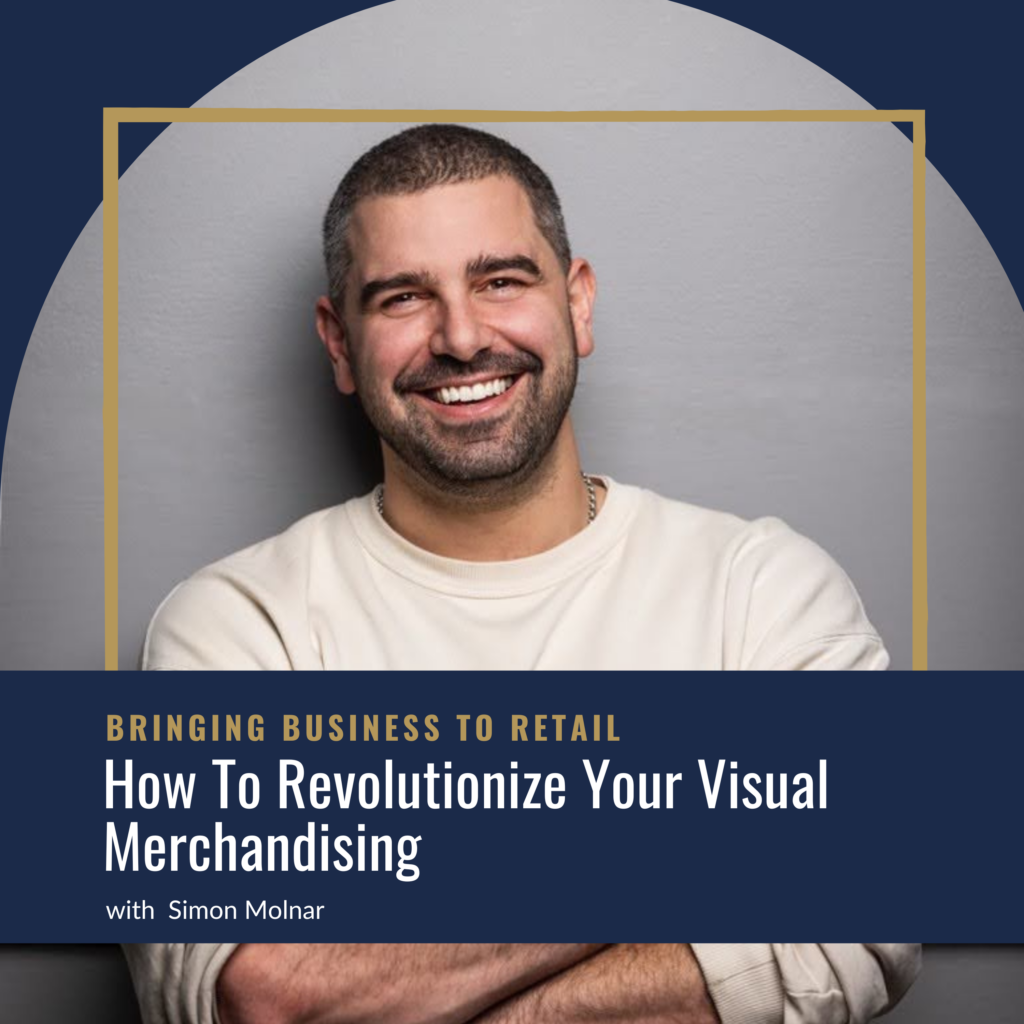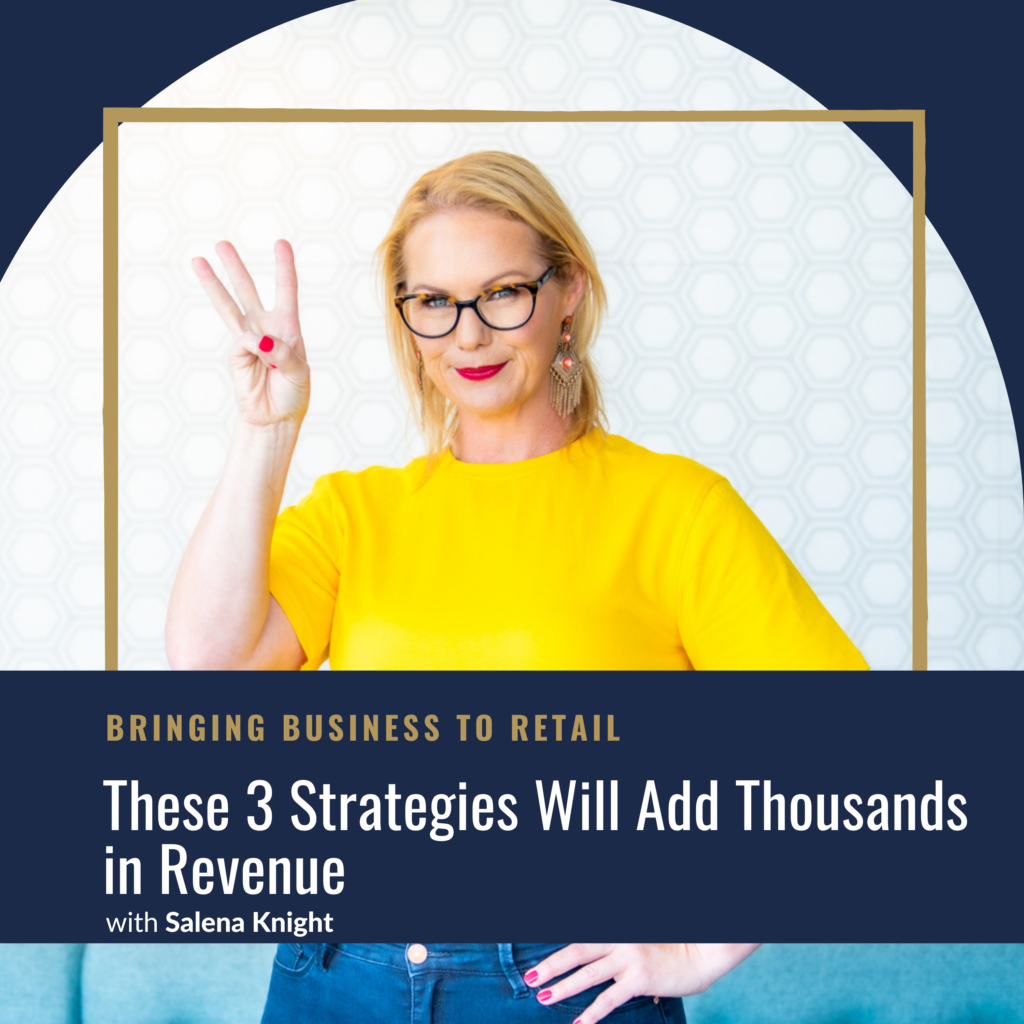
Busy ≠ Productive: How to Build a Business That Runs Without You

SHOW NOTES
If you’ve found yourself resizing a Canva image at 11pm or replying to customer emails for the hundredth time, I get it. You didn’t start your business to become the Chief Everything Officer. But somewhere along the way, the freedom and flexibility you dreamed of got buried under admin tasks and a growing to-do list.
In this episode, I’m pulling back the curtain on how to finally get out of the weeds and into the role of CEO. I’ll walk you through how to identify the tasks that are draining your time and energy, what to delegate or automate (yes, with real AI tools that save you hours), and how to reclaim your calendar and your vision.
It’s time to stop managing your business and start leading it.
What we cover:
- Why doing everything yourself is keeping your business small
- 3 questions to ask when deciding what to delegate
- My calendar blocking system that actually works
- How to spot the “CEO energy” leaks in your day
- Real examples of automation and AI tools that save hours
- The difference between being productive vs. just being busy
- A simple action plan you can implement today
LISTEN NOW on The Bringing Business To Retail Podcast
[00:00:00] If you've done any of these three things lately, then I'll almost guarantee that your business isn't hitting the goals that you want. Resizing a Canva image, uploading a product to your website, or POS reply to a customer email asking where their parcel is at, or whether a specific product is in stock or any other product related details.
Here's why. You didn't start your business because you love manually replying to customer emails or resizing product photos at 11 o'clock at night. You started it because you had a vision, because you wanted freedom, flexibility, growth, and probably to prove to the world that you could do something more than just work a job.
But somewhere along the line, you became the person doing all of the things. I'm wondering why you feel stuck, burned out, and like there is never enough time to actually move your business forward whether you are turning over $500,000 [00:01:00] a year or $5 million a year. If that feels a little bit too familiar, then this episode is for you.
Today, I want to show you how to change all of that. We're talking about how to stop getting stuck in the day-to-day and how to delegate the right tasks and how to step fully into your role as the CEO of your business. And I'm not talking about the Chief Everything Officer. Hey there. I'm Selena Knight, retail and e-Commerce growth strategist and welcome to the Bringing Business to Retail podcast where we talk all about different ways to grow your business yourself, and of course, your bank account.
Now, something that has paly hit home for me in the past six months. Is that you cannot scale your business when your hands are full of admin work. Now, I've talked about this on the podcast about how upleveling my business over the past year has taken me through a little, few, little, couple of highs, but also many, many lows.
Settling for not [00:02:00] so great has cost us hundreds of thousands, if not millions of dollars in lost revenue. And changing that, put a lot of those adminy type tasks back on my plate. And so as a result, the goals that I had set, well, they moved further and further and further away. So if your hands are full of the day-to-day operational tasks, if you are still the one who is uploading product listings or answering the same five customer service questions or posting manually to social media or chasing suppliers and manually managing your inventory op uploads, then I hate to break it to you, but you aren't leading your business.
You just managing a to do list. And no one tells you that when you're starting out, because in the beginning it does all fall on you. You do wear every single hat because you don't have a choice. You have to. And the hustle that got you to this point, well, that has to [00:03:00] change. If you want to go be W where you are now, if you want to grow sustainably, you have to let go because I say this all the time, right?
What got you here won't get you there. And who got you here? Won't get you there. So let's talk about how to identify what's holding you back and how we can delegate smarter and how to scale without working yourself into the ground from someone who has been there and done that. Plus, I'm gonna give you a little bit of an action plan so that you can start to take things off your plate rather than loading it up with more Sound.
Good? Alrighty, let's jump in. So the first thing I will say is that you are going to have to get. Out of your head, this idea that no one can do it like you can because you might be right, but only for now, and that's because you've built a business and what you've built is reliant on you. And hey, as business owners, we often have our self validation fed off the success of our business.[00:04:00]
And that need to be the person making all of the decisions to be the one checking all the things off a list. Well, the dopamine hits are addictive. Here's the deal. If your calendar is packed with uploading inventory, managing returns, responding to customer order status requests, posting on social media, chasing down unpaid invoices, checking on orders, paying invoices, writing emails, instead of strategic thinking, performance reviews and performance planning, then you are not leading your business.
You're simply managing the backend. And I say this because I've been there. And what I will also tell you is that the longer that you stay stuck in operations, the longer your business stays stuck at the level it is right now. Because being busy is not the same as being productive because leadership is about working on your business, not always in it.
And you hear this all the [00:05:00] time, it's, you know, it's such a trite comment that people just throw out into the air work on your business, not in your business. Well, that's because it's so freaking true. The CEO role is about growth, it's about strategy, it's about vision and leadership, and building systems and teams that allow the business to run without you.
Yeah, that's what I just said, that allow the business to run without you. If your hands are full of task work, there is no room for that. Now, personally, having taken a few days away from everyone and everything to sit down and plan and just dump my thoughts into a notebook and sift through them, I can honestly say that what I achieved in two days sitting by a pool.
Was more than I could have hoped for in six months at my desk. And without that oversight, that vision, that energizing drive, businesses become stuck. They become stagnant [00:06:00] and dare I say it, they often go backwards. Last year I started this thing called calendar blocking, and I will be honest when I say.
I'm trying hard to get it right and I still haven't gotten it buttoned up perfectly, but I am really trying and I get better every single week. Now, calendar blocking is simply going through your calendar, like going through your to-do list and then going through your calendar and then spending 20 minutes at the end of the week to list out what needs to be done, uh, the prioritizing, and then actually going into your calendar.
Setting the time, one after the other for those things. So answer emails seven till seven 15, or maybe it takes 30 minutes, seven till seven 30, and then you might come in and you might check over your sales and you might spend 15 minutes doing that. So that's from seven 30 to 7 45. This sounds so anally retentive, and that is what I [00:07:00] thought too.
It's like, ugh. Realistically. I don't want to be that micromanaged, but trust me, like just give this a go. Trust me when I say that, spending 20 minutes at the end of each week to first of all prioritize, that was the big thing for me. I had a massive list of things, but what had to be done on a Monday and then what had to be done on Tuesday?
And the thing was, I now get my team to do this as well, so I will look at their calendars and come back and go, huh, well, they're not gonna get me that information according to their calendar until Wednesday. I had allocated time on Monday. I now have a choice to make. I either get them to have a discussion and see if we can move that to Monday, or I need to change out my calendar so that I'm working on that thing on Wednesday afternoon or on Thursday and all.
You start to see that there are massive gaps in your, in your day that you are probably just wasting. So being able to prioritize and then [00:08:00] allocate the time. This past Monday, I had my whole day mapped out and it was so refreshing to just see the little timer come up and go, right. Okay, my time for that is finished.
I need to move on. What I also realized is there were some tasks that I had allocated. Like half an hour four. But the reality was when I did it, it took me an hour. But what I had done, because I wasn't a hundred percent sure, is I'd actually built some buffers into that day. And then I had some ideas of what I could do if I didn't end up using that time.
So doing all of this really reinforces where your focus is going and it highlights those glaring inconsistencies about what you spend your day doing. And it's funny because when I suggest this, so many people tell me there is no possible way I can plan out my day. And my answer to that as someone who has gone through that is, if you are spending that much time, we call it [00:09:00] firefighting.
If you're spending that much time firefighting in your business. You have much bigger problems that you need to solve. We actually have some time built into our day to do firefighting tasks because sometimes things come up that you never expected. Maybe something breaks, an integration breaks or something goes down.
So I will actually add in firefighting time into particular days. Now, if I don't use it on one day, then I can simply move something else up into the day before. But trust me when I say, if you think that you cannot allocate your time in a day, I would really urge you to sit down and look at what the heck you're doing, because you should be able to map out a large portion of what you do each day.
So let's move on to how do you identify the tasks that are stealing? Let's call it your CEO energy, because your CEO energy is, this is the vision, it's the pizazz, it's the thing that you bring to the business. That spurs on the rest of your team because [00:10:00] if you don't have that, if you come to the business with no energy, that gets felt.
And if you are not a hundred percent in, you cannot expect your team to be a hundred percent in. So let's look at the things that are sapping or potentially sapping your CEO energy, and let's make this super practical. I want you to take one week, just one week, and write down every single thing you're doing in your business.
Every single thing. You can use a notes app on your phone. You can use a notebook, whatever. You can use voice memo, whatever it is. I just want you to write down what it is you do. Is it inventory uploads? Is it answering dms? Is it posting on Instagram? Is it customer follow up emails? Is it checking your emails 12 times a day?
Is it scheduling product launches? I just want you to write it down and if you are super type A like me. And have your calendar handy at all times. It's easy to literally block out the time that you are spending on each thing, [00:11:00] going back to that calendar blocking thing. But what we're actually saying is, let's go a little step before that is before we even do the calendar blocking, let's just map out what we're doing.
Where are we spending our time? And you will start to see patterns, I promise. And then at the end of the day, you simply review where all of your time went, and you ask yourself these three questions. Does this task need my personal touch? So, do you have to do this thing? I have to do this podcast. I have to turn up and record it because it's my podcast, but I don't have to answer every email.
So the first question you're going to ask is looking at your tasks. Does this particular thing need my personal touch? And I'm gonna say something here is if the answer is, it is a, a product specific question, the answer should be no. There should be someone else on your team. Again, this comes back to the fact that you don't have the systems in place.
So first question, does this need my personal touch? The second question, [00:12:00] does this thing directly drive revenue? And if so, how much? Huh? It's the, it's the end, the bit on the end that makes a difference. So you might find that allocating your tasks is quite easy, but what you might find is that you are.
Defaulting to things you actually enjoy doing, but there are things that maybe you don't enjoy doing, but if you sat down and put the time into them, you would generate a lot more revenue. So I want you to be honest. Does this task that you wrote down drive revenue? And if so, how much? And then moving on, could somebody else be doing this at a lower hourly rate than what my time is worth?
Big one, right? Even managing your team doesn't necessarily need to be you. You could put an a store manager or an operations manager in place, and then you would only have to be looking after that person. So if you're spending a lot of time managing your team, maybe you need somebody in between. So those three questions, can someone else be [00:13:00] doing this at an hourly rate than what my time is worth?
Does this directly drive revenue? And if so, how much And does this thing need to be done by me? Simple. And if the answer is no, it doesn't need you personally, yes, somebody else could absolutely do this. That task goes on your delegate list. Because here's the thing, just because you can do it doesn't mean you should do it.
So don't fall into the trap of, I'll just do it myself because it's faster, because maybe for one task, one time, that's true. Over weeks, over months, over years, not so mindset. Is what actually keeps you stuck exactly where you are. So you've got your list or your calendar. What's next? Well, the first step is figuring out where can you bring in some support, or even better, my favorite automation.
You would be surprised at what you can automate and, and I am constantly surprised every single day at how [00:14:00] amazing AI is, or even just automation is. They don't have to be the same thing. Looking at all of these things that don't need your personal touch. Is there anything that you can either get some support in for, or delegate to your team or automate?
So what that might look for is look like, is maybe you get a virtual assistant in to handle your customer service, your product uploads, or your social scheduling. Or maybe you might bring a freelance graphic designer in for creating all of the images that you need. Or maybe a freelance email marketer in if you're spending an awful lot of time doing emails.
Then look at automation tools like Klaviyo for your abandoned cart sequences. Zapier for connecting lots of systems together. I love ManyChat for super quick customer responses. Apps like gorgeous or other support ticket systems where you can literally build in an AI knowledge base. 80% of your questions could actually be [00:15:00] answered by ai.
And the best part about that. Is, well, two best parts. One for you. It's much cheaper than it is for you to hire somebody, but two, your customer gets a response straight away. Let's bring this back to what it might look like for you. Let's say you spend three hours every week replying to those emails that say, where's my order?
We all get them. If we go right back to the beginning, a simple email marketing klaviyo flow that is triggered when somebody makes a purchase could send all of the updates for you. It could answer all of those questions if you haven't got that part set up yet. But if you wanna go even better, using those conversational AI apps, like Gorg literally removes the work of a person, even if you don't want to do support tickets, even inside of your email, there are other apps like Lindy that you can put your knowledge base in who will reply to your emails for you.
So you could be doing all of this in your sleep and your customers are getting answers straight away. So [00:16:00] let's work this out. Let's say you get a hundred support tickets a month, and each ticket takes you five minutes to open up Shopify, check the order, and then write a reply. That is 500 minutes a month or 8.3 hours.
That is literally a full day every month that you are losing to something that does not need to be done by you. In fact, it doesn't even need to be done by a real person. AI will do this for you and it will do it for you for less than a hundred dollars a month. So think about that. Losing a whole day of productivity, either for you or even for someone on your team, for probably less than a hundred outlay.
And then thinking about it as a business owner, how much money have you lost as a result of spending about 8.3 hours answering a root question? What else could you have been doing or your team in a full day? What could you have been doing to grow your audience or to build partnerships [00:17:00] or to plan your next revenue generating promotion?
Or what could your team have done in that time? Maybe they could have done some follow ups with people who ask questions about a product they could have been generating revenue. So can we take a moment just to expand on this? Let's just like zoom back out for a moment. Some of you might be using AI already and others may have put it on your to-do list, and it is really easy to see all of the things it can do and be overwhelmed and end up down the rabbit hole.
But the reason that retailers stay so trapped in these low value tasks isn't just because they don't wanna let go. I think that is a primary fact, but the real reason that they get stuck in the day to day. Might not be that they're bad at time management, it might be because of a thing that I call a knowledge deficit.
So it's the cost of not knowing that there is a faster, easier, more efficient way to do things that are eating up your time. So you might've been listening to this podcast going, huh, I have never heard of Gorgeous. I'm gonna go and have a look. [00:18:00] If you are, it's called, it's spelled G-O-R-G-I-A-S, or you've, I've never heard of this thing called Lindy that could do my emails.
That is a knowledge gap. And the cost of not knowing that there is something out there. So the knowledge deficit, the knowledge gap is the difference between what you know, what you don't know, and then what you don't even realize. You don't know. So business strategist Alex Hormoze, a hundred million dollar business.
He says The bottleneck in your business is almost always you. Not because you're not working hard, but because you haven't learned how to solve the next level problems. And I see this play out all the time. Retailers who are manually replying to this same five customer service questions every single day.
When a simple AI chat bot could handle it, if you took the time to build the knowledge base, you might be spending hours writing custom order follow ups or product specific answers. When [00:19:00] another system could automate that for you in 15 minutes. Maybe you're still manually posting the Instagram one post at a time.
When you could be batching content and scheduling it out with later or poli, and I'm not even gonna get into the, the benefits or the the downsides of posting organically versus posting with an app. What I'm saying is, if that is where all of your time is going, there are ways to get around this. If you don't like doing that, have your team or a VA do it for you.
The issue isn't that these solutions aren't out there. The issue is you don't know how to set them up or. You don't even know that they exist or you haven't prioritized learning how to do that, or having someone on your team learn how to do that and that lack of knowledge, it's quietly costing you time and money and momentum.
So the real question is, should you be doing this? Stop asking, can I do this? And start asking, should I be the [00:20:00] one doing this? I even do this with my team. My COO said something to me today, and I was like, oh, hold on. Why are you doing that? He said, oh, no, no, I'm not doing it. I'm, I'm managing the, the next person doing it.
And I was like, oh, okay. Well, when you just said you were doing it, I'm like, this is not a job that you should be doing because yes, you can answer the dms, you can upload the products, you can follow up on all the abandoned carts, but should you, it might feel quicker right now. But it is not cheaper in the long run.
It's not smarter, and it is definitely not scalable. If you want your business to grow, you have to think about does this work at scale? And this is a question that I come back to the team all the time. They might put something forward and I'm like, right, so when we 10 x, is this still going to work? And if the answer's no, I have to work out why and if it is worth implementing in the short term.
Sometimes the answer is yes. It's like, well, it will get us to. Five x, great. And then we'll have different systems in place to get us to 10. But [00:21:00] sometimes the answer is, well, it should be perfect now. It should be exactly the samely. Perfect. I'm gonna go with those words. It should be perfect now and when we 10 x it should be the samely.
Perfect. That's my made up word. Your job is to build the system, not to be the system. And every hour that you spend doing $15 an hour work is an hour that you are not spending on $500 an hour leadership. Okay? Sal has had her little rant, and hopefully you've got it through your head that you got it through your head.
That sounds very, very autocratic, doesn't it? Hopefully it is sinking in that there are better ways to do things in your business. So I promised you an action plan. Here's what it looks like. I want you to take action today. While you are listening to this podcast, I want you to open up that note, take an app or grab that piece of paper that you are going to start tracking your time and write, listen to a podcast.
So make that task list and then step two, I want you to highlight the tasks [00:22:00] that don't require you, and then just choose one task to delegate this week or this month. If it's a big thing, it might be this month, it might take you time to build the processes and the systems for somebody else to do it. It might be something that you've just held onto because you always have.
So just choose one thing for you to delegate or automate this month and then find the right person or the tool. Spend a bit of time looking at whether that's gonna be a virtual assistant or a freelancer, or maybe an automation platform. And then this is where it gets interesting. Document the process.
So train once and free yourself up forever. There are so many tools to document processes. Free tool called Scribe ai, I think it's called. It'll literally for free map what you're doing on your screen and create an SOP for you. I go so far as to say, set your camera up on a tripod while you are doing something.
This is how we pack an order. [00:23:00] It doesn't have to be flash, it just has to be watched so that somebody else can do it. Document the process, train once. Free yourself. This is not necessarily about hiring a full team overnight or AIing or automating everything. It's just about taking the first step towards getting out of your own way.
Because every task that you take off your plate is one more hour that you get back to lead and grow your business. If you are feeling overwhelmed or stuck, or like your to-do list runs your life, it is not about hustling harder. It is. All about delegating smarter, getting out of the weeds, stepping up, closing that knowledge gap because your business doesn't need another admin assistant.
But actually, as I say that, your business probably does need another admin assistant. That just shouldn't be you. You need to be the visionary, the strategist, the leader. And if this episode [00:24:00] gave you that little bit of a push that you need, I would love it if you could share it with a fellow retailer who is stuck doing all of the things.
Tag me on Instagram, let me know what is the first thing that you are going to automate or delegate. And if you want real support, not just in knowing what to automate or delegate, but building the systems that make scaling possible, check out my scale your store accelerator over at selena knight.com/accelerator.
I'll drop the link into the show notes. Alrighty, until next time, keep going. You've got this. So that's a wrap. I'd love to hear what insight you've gotten from this episode and how you're going to put it into action. If you're a social kind of person, follow me at the Selena Knight and make sure to leave a comment and let me know.
And if this episode made you think a little bit differently or gave you some inspiration, or perhaps gave you the kick that you needed to take action, then please take a couple of minutes to leave [00:25:00] me a review. On your platform of choice because the more reviews the show gets, the more independent retail and e-commerce stores just like yours, that we can help to scale.
And when that happens, it's a win for you, a win for your community, and a win for your customers. I'll see you on the next episode.
Share this episode
Watch The Video










